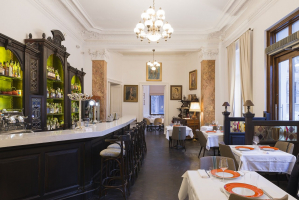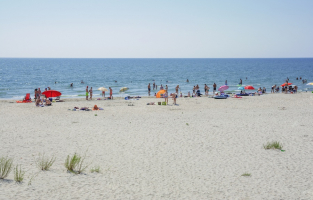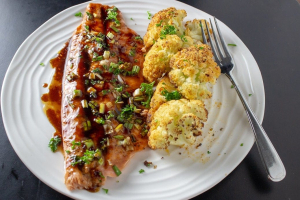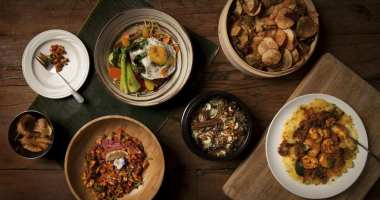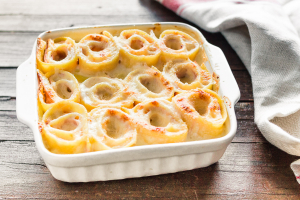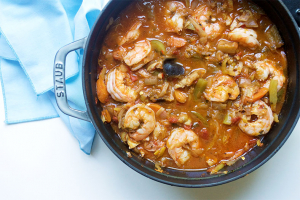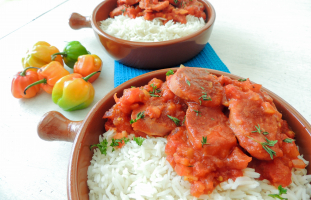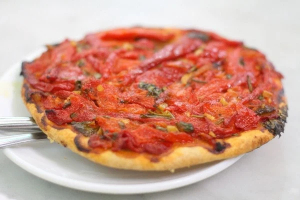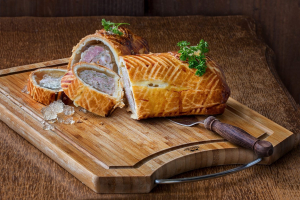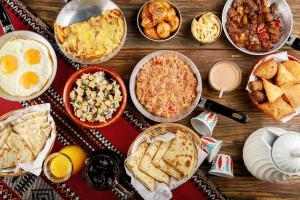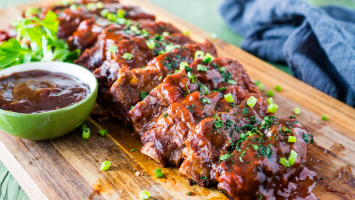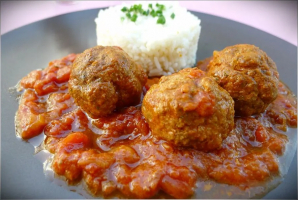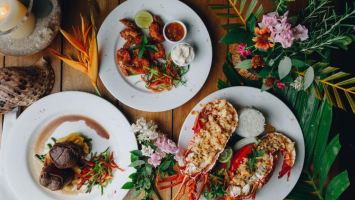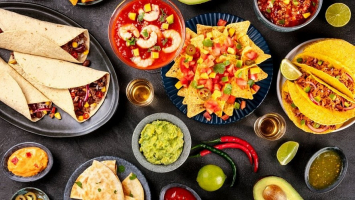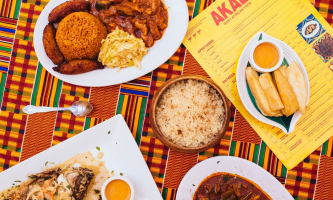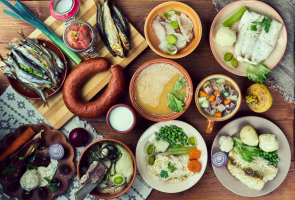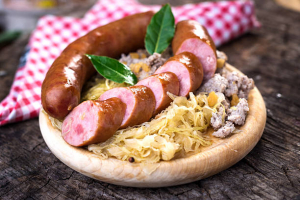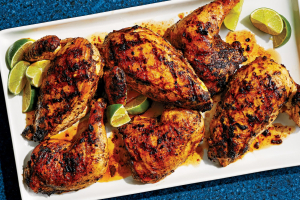Top 10 Best Foods In Romania
While Romania is better known internationally for Dracula, Transylvania, and Nadia Comaneci, its lesser-known cuisine is something well worth exploring. ... read more...Traditional Romanian food brings together many ingredients and is heavily influenced by Balkan, Turkish, Serbian, German, and Hungarian cuisines. Due to this rich experience, Romanian food is varied, filling, and very salty. Here are the famous dishes that you must try when coming here.
-
Sarmale (Cabbage Rolls) is a Romanian cabbage roll traditionally served at Christmas and New Year. You will find them in all restaurants, and they are served year-round at weddings, christenings, or any other celebration. It is a staple in Romanian cuisine and can also be made vegetarian. Sarmale is cabbage rolls filled with rice and buckwheat. They are filling, healthy, and super delicious.
Ask any Romanian for their definition of a traditional dish, and they'll all tell you sarmale (Romanian cabbage rolls) served with mamaliga (Romania polenta).
In Romania, every woman (and some men, of course) learns how to make these Romanian cabbage rolls. Each household has its traditional sarmale recipe, some are made with meat, and some are made vegan.
The Romanian sarmale is a super versatile dish. It stays in the fridge for several days and is reheated the next day. They can be served with any topping you like, from breaded potatoes to mashed potatoes.
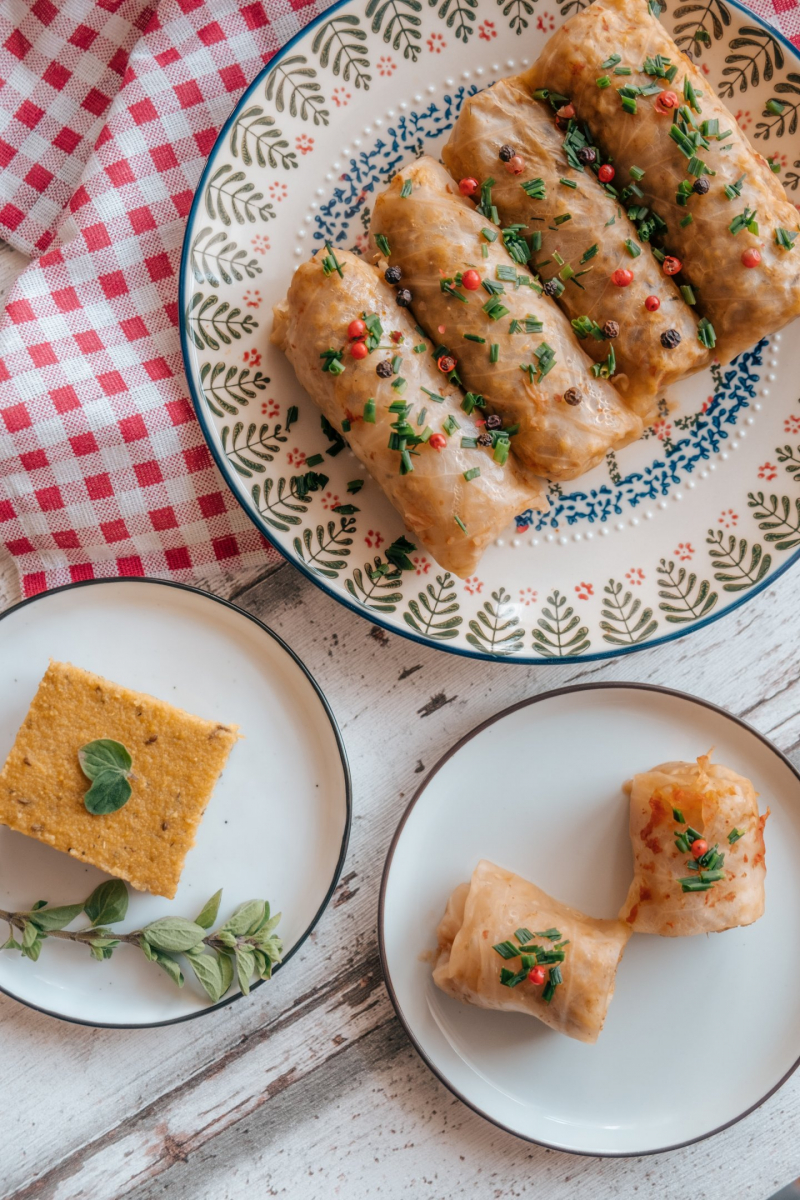
Sarmale. Photo: yuzubakes.com 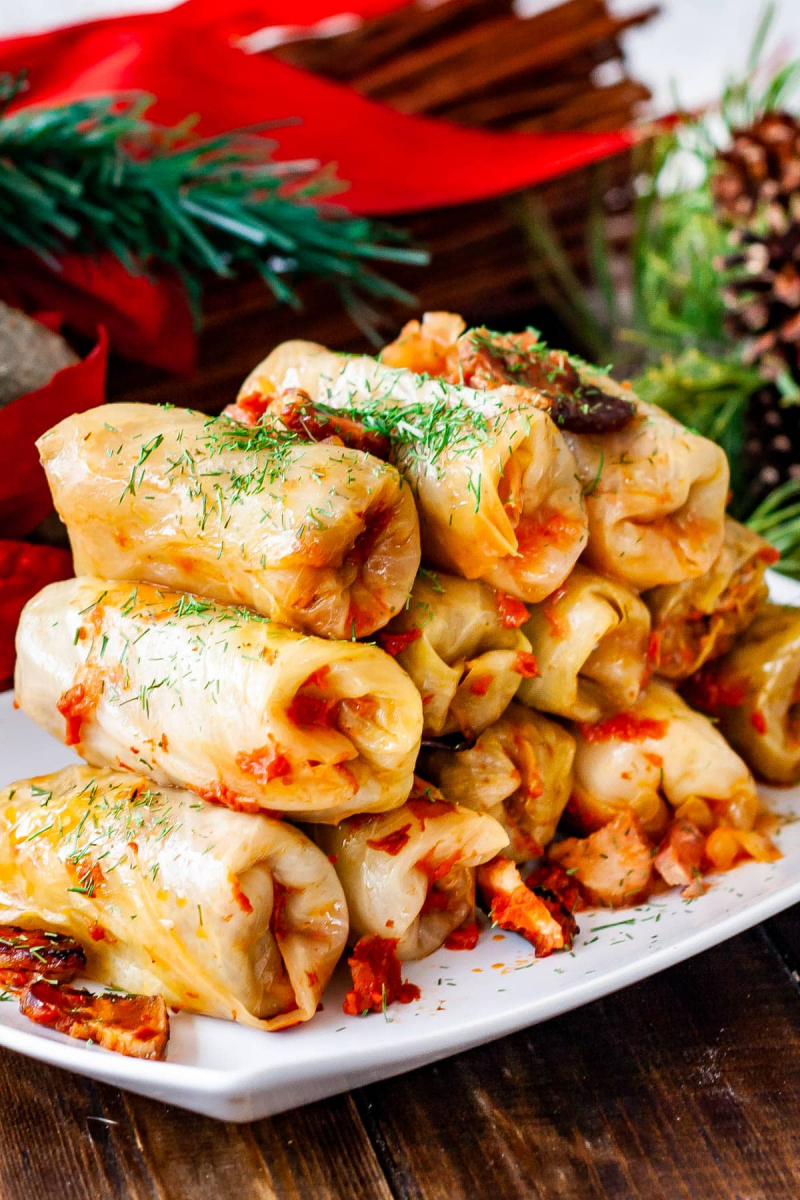
Sarmale. Photo: jocooks.com -
Mămăligă (Polenta) or mamaliga is a staple in Romanian cooking. It has always been considered peasant food, but you are bound to find polenta in just about any household in Romania, villages, and cities.
Polenta is a dish made with coarsely ground cornmeal, a little water, and a little salt. Cook a little, and you're done. You have a wonderful, healthy, and delicious meal.
You can use mamaliga or polenta as an accompaniment to other dishes with sauces, or it can be a separate meal with some cheese and yogurt/creme fraiche/sour cream on the side.
And the possibilities of making a main dish using polenta are endless. You can make casseroles. You can grill, you can bake, you can make cakes, you can make fries, and so on. It goes well with any meat, vegetable, or dairy product.
Polenta is also a good source of iron, magnesium, phosphorus, zinc, vitamin B6 and cholesterol-free. So try polenta!
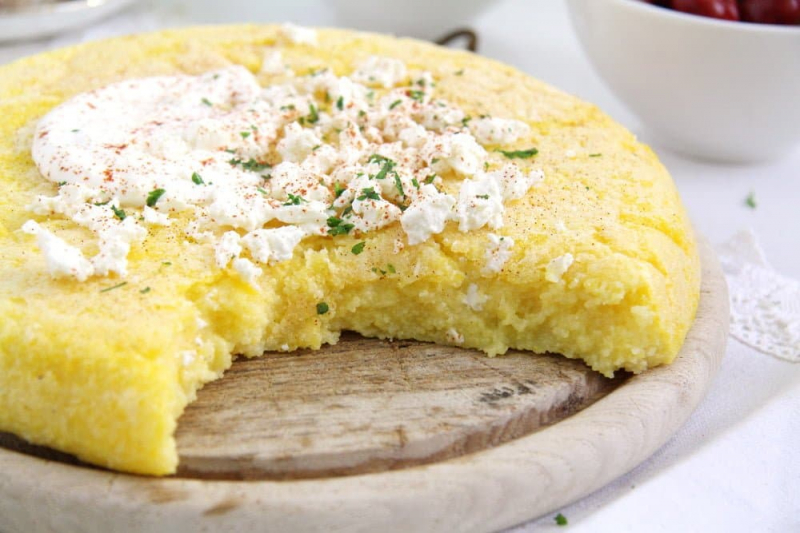
Mămăligă. Photo: whereismyspoon.co 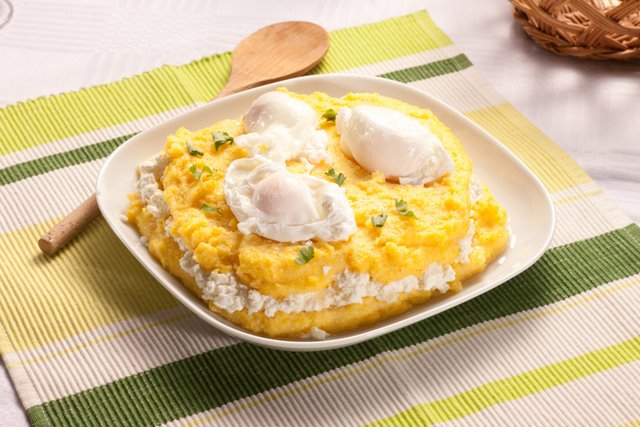
Mămăligă. Photo: romanianfood.wordpress.com -
These homemade sausages are known as Mici (Grilled Minced Meat Rolls), which translates small, and pronounced Mboards, are a staple of Romanian BBQ. No bbq is complete without these delicious little ones. Now, this is street food in Romania and is loved by everyone.
Generally, people buy them raw from local butchers and grill them at home. Mici's are now available to buy in the UK, but why to buy them (mostly frozen) when they are so easy to make at home. So give them a try and let me know how they made it for you.
Ideal for picnics or BBQs especially grilling them and eating them fresh on the spot and afterward. They can be sautéed or grilled, but they won't be the same. Delicious on the inside, crispy on the outside, you can enjoy best with just mustard and bread.
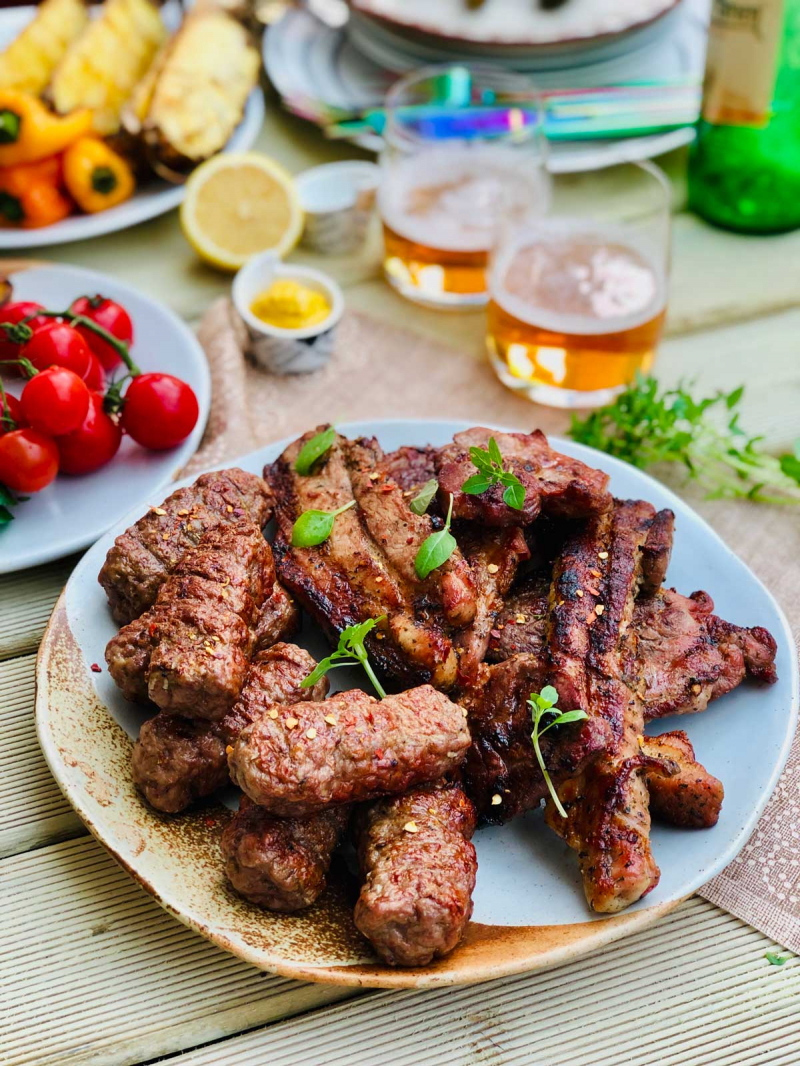
Mici. Photo: ramonascuisine.com 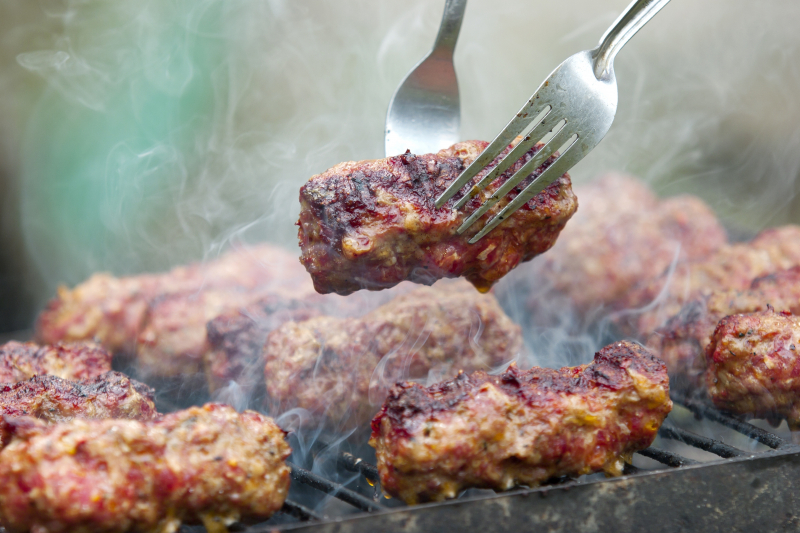
Mici. Photo: shoppinginromania.com -
For a daring and brave experience when traveling abroad, you must try one of the most popular soups in Romania - Ciorbă de burtă (Beef Tenderloin Soup). Although the name may not sound too appealing, this is a real delicacy and sure to make you swoon.
Tripe soup is a traditional Romanian soup made with beef, garlic, sour cream, eggs, and vinegar. With a great creamy texture, this is a dish that anyone must try.
Unofficially, Romanian people call this the "queen of soups." It is considered a rare delicacy. It is sweet, sour, and nutty, with many other subtle flavors blending under the surface. The soup is so simple that it has many magical aromas: diners cannot help but wonder where they come from when the dish seems to consist of only water, bacon, and a few vegetables. The obvious answer is that all these mysterious flavors come from the chef's virtuosity, which is the explanation I often go with. Served hot with pickled chili peppers will bring unforgettable experiences for you and your diners.
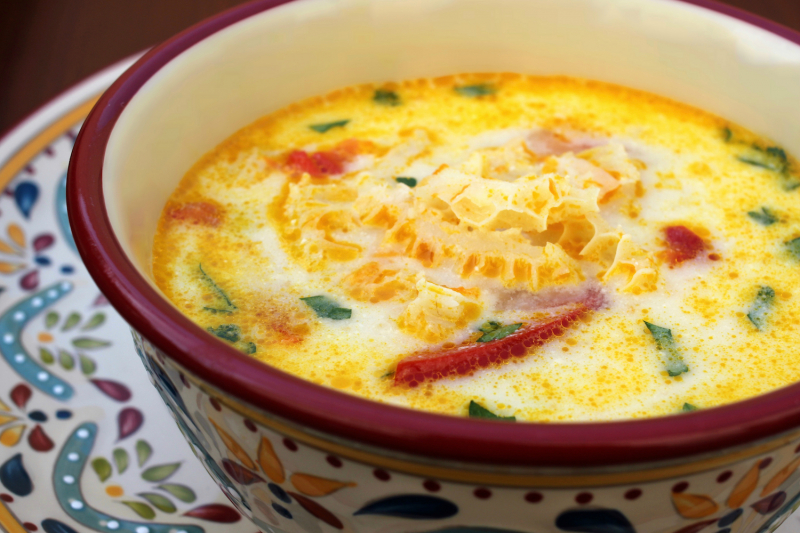
Ciorbă de burtă. Photo: artsybites.com 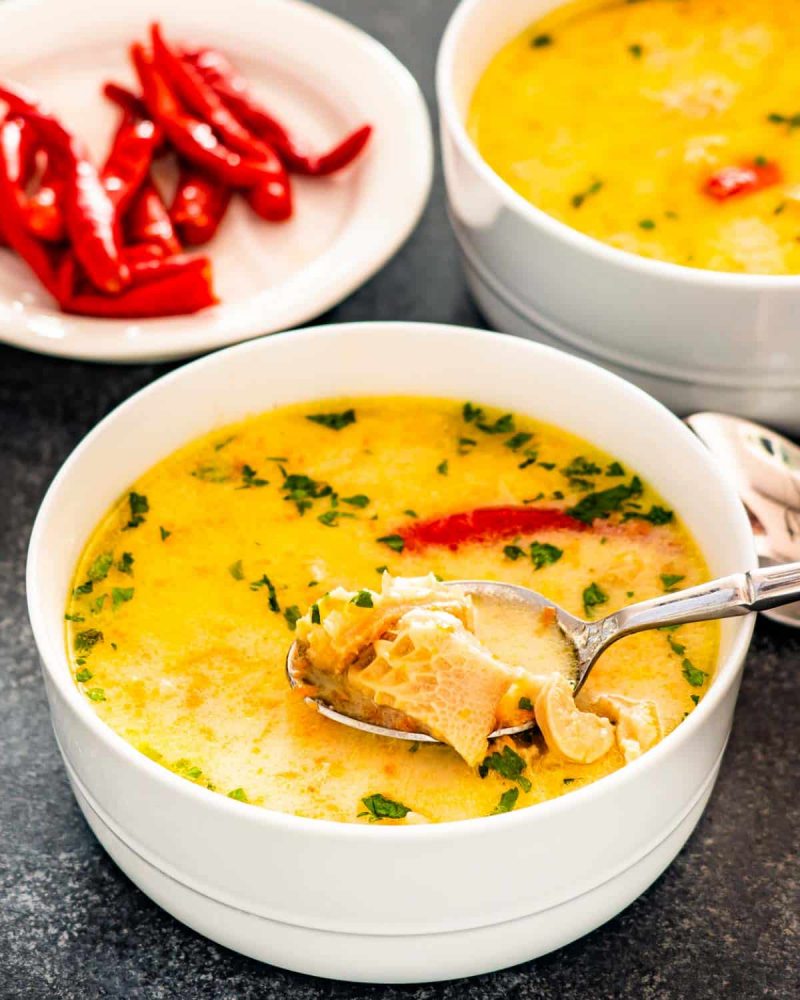
Ciorbă de burtă. Photo: jocooks.com -
Pomana Porcului (Honoring The Pig) has its roots in a long rural tradition, and the two should experience it together to get its great taste. The tradition takes place in the cold and dry air of December, on or after December 20, the day of Saint Ignatius. Pigs are sacrificed for Christmas dinner. Then foods are made from the skin, offal, and meat. The cooks spend hours in the kitchen preparing everything.
This dish is one of the best for the winter holidays. In the countryside, this dish is indispensable on the Christmas table. People are used to high-fat dishes. Pork kidney has many variations, but the main thing is that people use pork belly. You can choose the neck, thighs, or flanks of the animal, depending on your personal preference. For extra flavor, you can add homemade sausages and a little white wine.
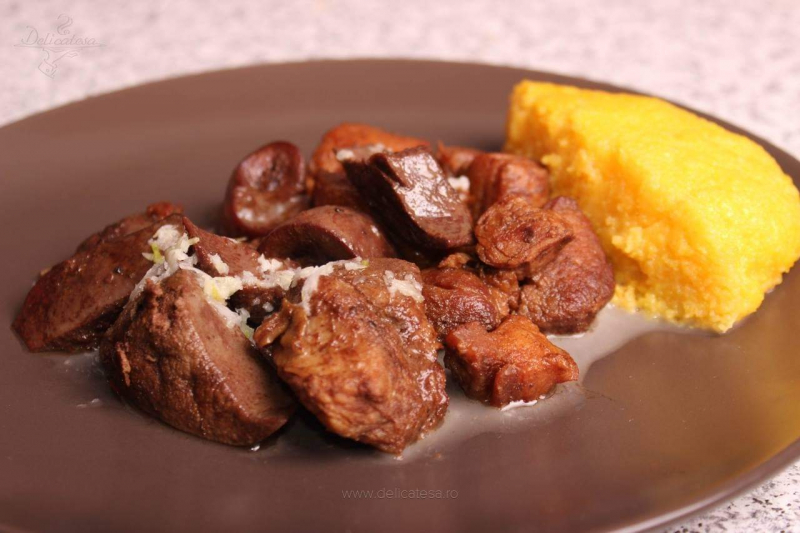
Pomana Porcului. Photo: delicatesa.ro 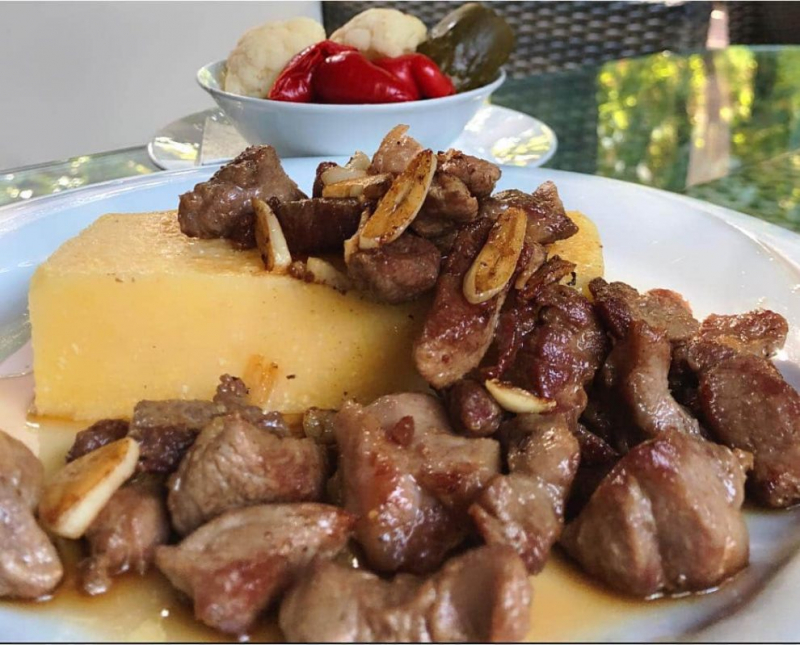
Pomana Porcului. Photo: chefspencil.com -
Pork greaves and lard are traditional Romanian foods. That is traditionally prepared before the holiday season and then eaten in abundance throughout the year. The Romans made a savory, crispy appetizer called jumări from frying pieces of bacon and lard from sacrificing the same pig,
Jumări (Greaves) is best served warmly and always accompanied by raw onions and a dash of țuică, the traditional plum spirit, to aid digestion. However, you should not eat too much because they are fatty, fried with a lot of fat, and sprinkled with salt. You definitely shouldn't eat it without bread to suck up the fat swimming in your belly.
All you need is pork belly, salt, and a little water. In some parts of the country, milk is used instead of water. But that is the exception rather than the rule.
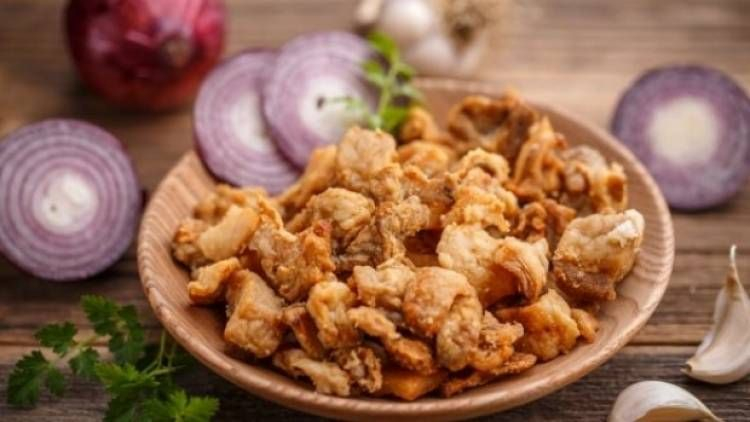
Jumări. Photo: ro.pinterest.com 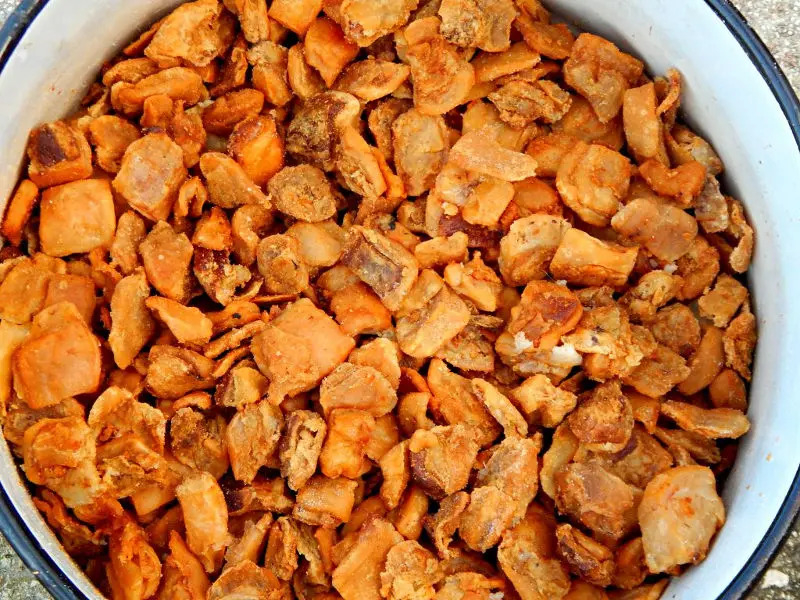
Jumări. Photo: chefspencil.com -
Cozonac (Sweet Bread) is a classic, simple, sweet yeast bread that originated in Romania. Traditionally made during Easter and Christmas, this citrus-scented MSG is twisted around an attractive filling, creating a spiral design when baked. The result is a festive loaf with a soft and supple crust.
No Christmas or Easter is complete without this traditional Romanian dessert. The pride of every cook, Cozonac, can be a real challenge for a household as it has to be done right.
Kneading the dough is a laborious job, and the whole process takes some time, but the results are worth it. This Romanian dessert is a pastry with a sweet walnut filling, poppy seed filling, or a Turkish side dish and raisins.
It can also be found year-round in stores or fairs, but nothing beats the taste of homemade.
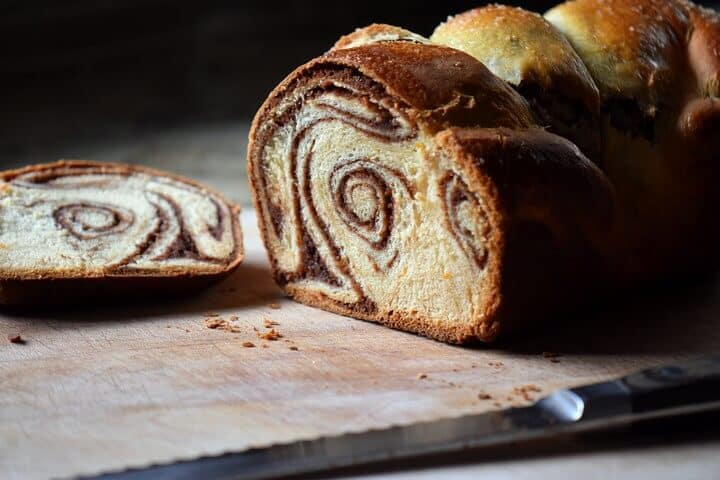
Cozonac. Photo: shelovesbiscotti.com 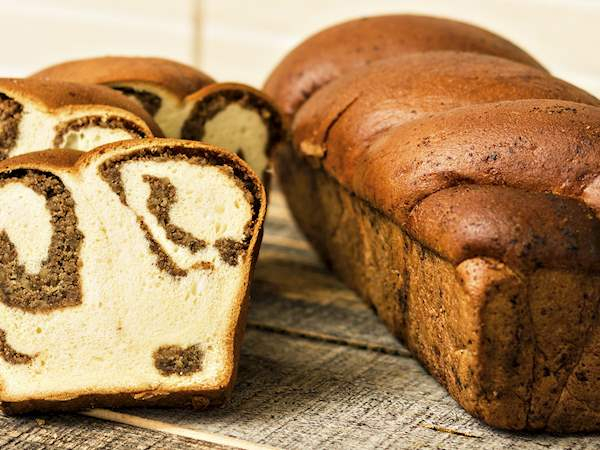
Cozonac. Photo: tasteatlas.com -
An Easter meal wouldn't be the same without Drob de Miel (Lamb Haggis), a traditional Romanian dish usually prepared only during the Easter holidays. Although of course, it's suitable for the whole year.
Drob is the equivalent of lamb haggis, and many recipes vary from region to region, even from family to family.
Lamb haggis can be made plain with lamb for a richer flavor, or pork can be added to reduce the intensity of the lamb flavor. People who don't like the taste of lamb but still want it on the Easter table often use chicken offal. During preparation, special attention should be paid to washing offal. There is also a variation with chicken or turkey liver that some people prefer.
Lamb Drob is served cold.
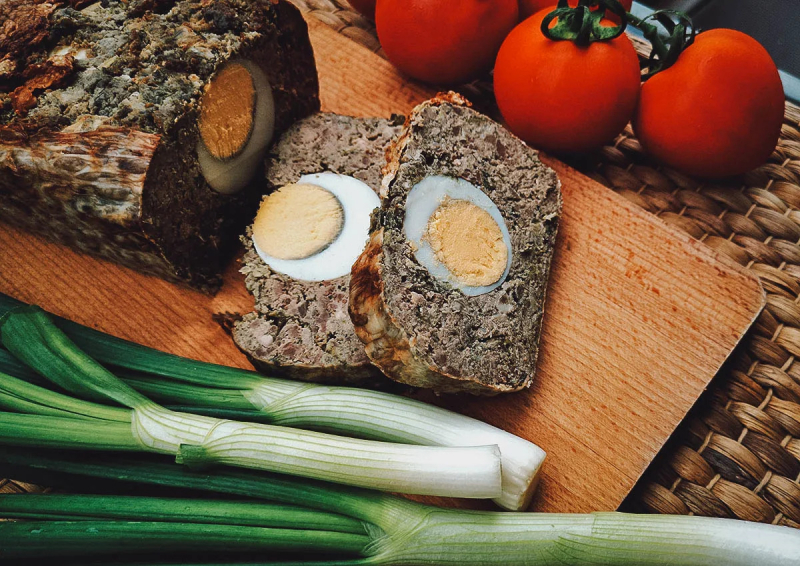
Drob de miel. Photo: willflyforfood.net 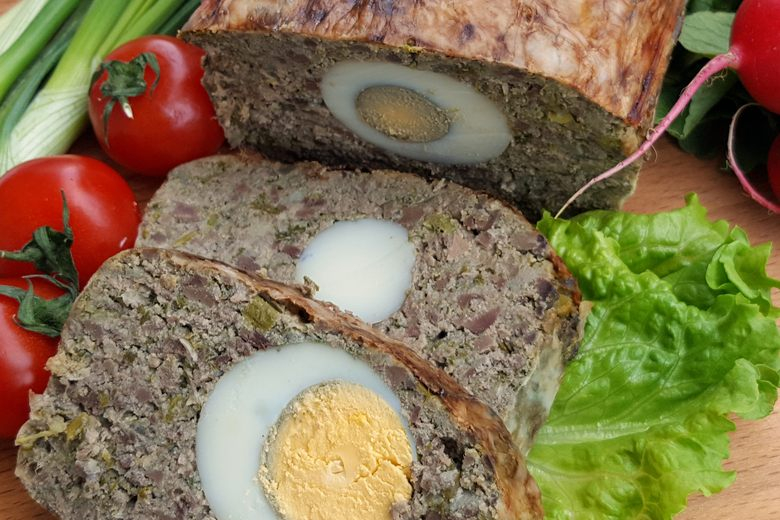
Drob de miel. Photo: atlasobscura.com -
Papanași is sour cream and jam doughnuts (donuts) popular in Romania and Moldova. Some claim it is Romania's most famous dessert.
Unlike the West, donuts don't contain much sugar and instead rely on a fruit jam topping for sweetness. One difference between papanași and Western donuts is that they are made with a type of dry curd cheese, known simply as brânză de vaci (beef cheese). Another commonly used cheese is urdă, which is similar to dried ricotta.
This cheese forms the base of the dough and gives it a mild sour taste and thick consistency. Once cooked, these Romanian donuts have a slightly heavier texture than the light and soft Western ones.
As for cooking, while American donuts are always deep-fried, papanași can be fried or boiled.
The latter has a texture similar to that of gnocchi, with no shadow on the top, and is usually coated with a crispy golden bread crumb. However, like the fried version, it is served with smântă (sour cream) and a sweet, tart jam like wild blueberries or sour cherries.
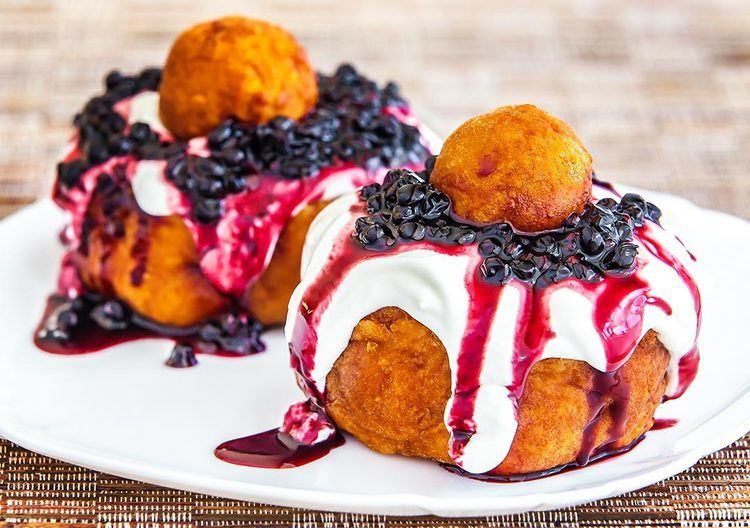
Papanași. Photo: Papanași. Photo: alchetron.com 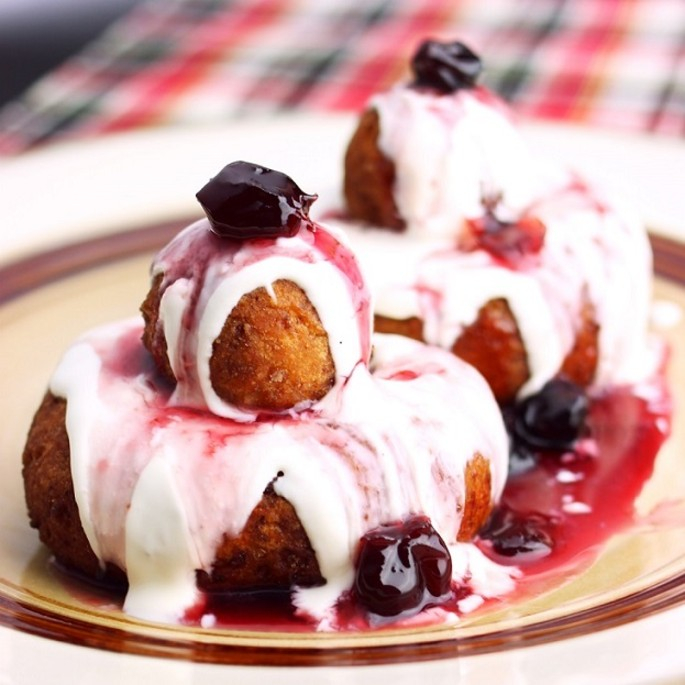
Papanași. Photo: alchetron.com -
This beef salad, also known as Salata de Boeuf (Beef Salad) in Romania, is a traditional salad made for Easter, Christmas, and New Year's Eve that can be served as a side dish or a meal on its own. You can make this with beef, turkey or chicken, potatoes, peas, and much mayo. It's like a potato salad that's gone!
Bet you've never eaten this salad before and have never eaten it anywhere else or seen it on any menu. But it is the most traditional salad in Romania for all holidays.
The name beef salad comes from the French word "boeuf," which means "beef." However, the Romanians have several recipes for making a beef salad, not only with beef but also with chicken or even without meat. Salads can be served as an appetizer or garnish a steak. It is very important in this beef salad recipe that the mayonnaise. If you use it, will bind the ingredients rather than soak them.
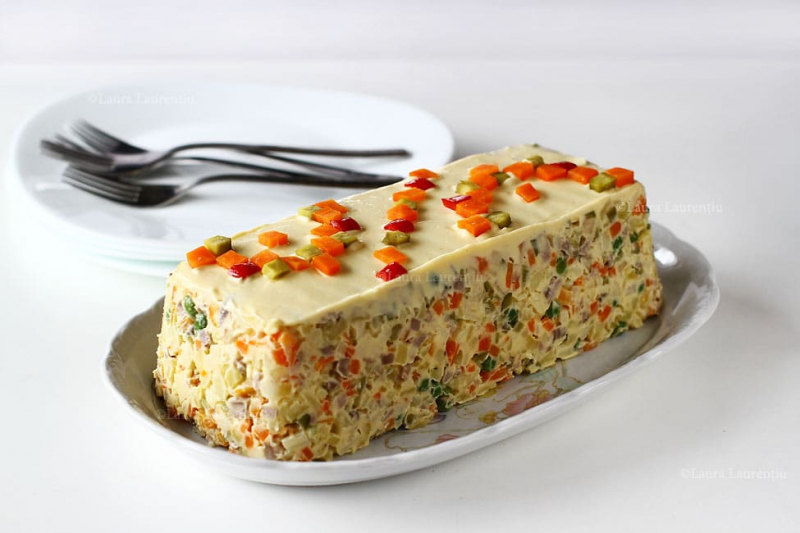
Salata De Boeuf. Photo: chefspencil.com 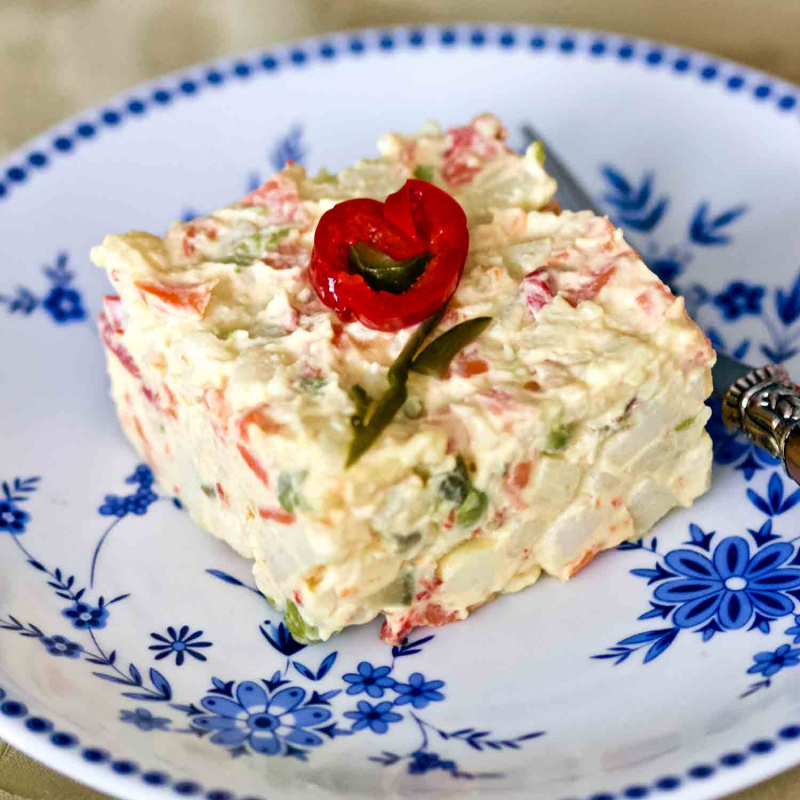
Salata De Boeuf. Photo: thebossykitchen.com












